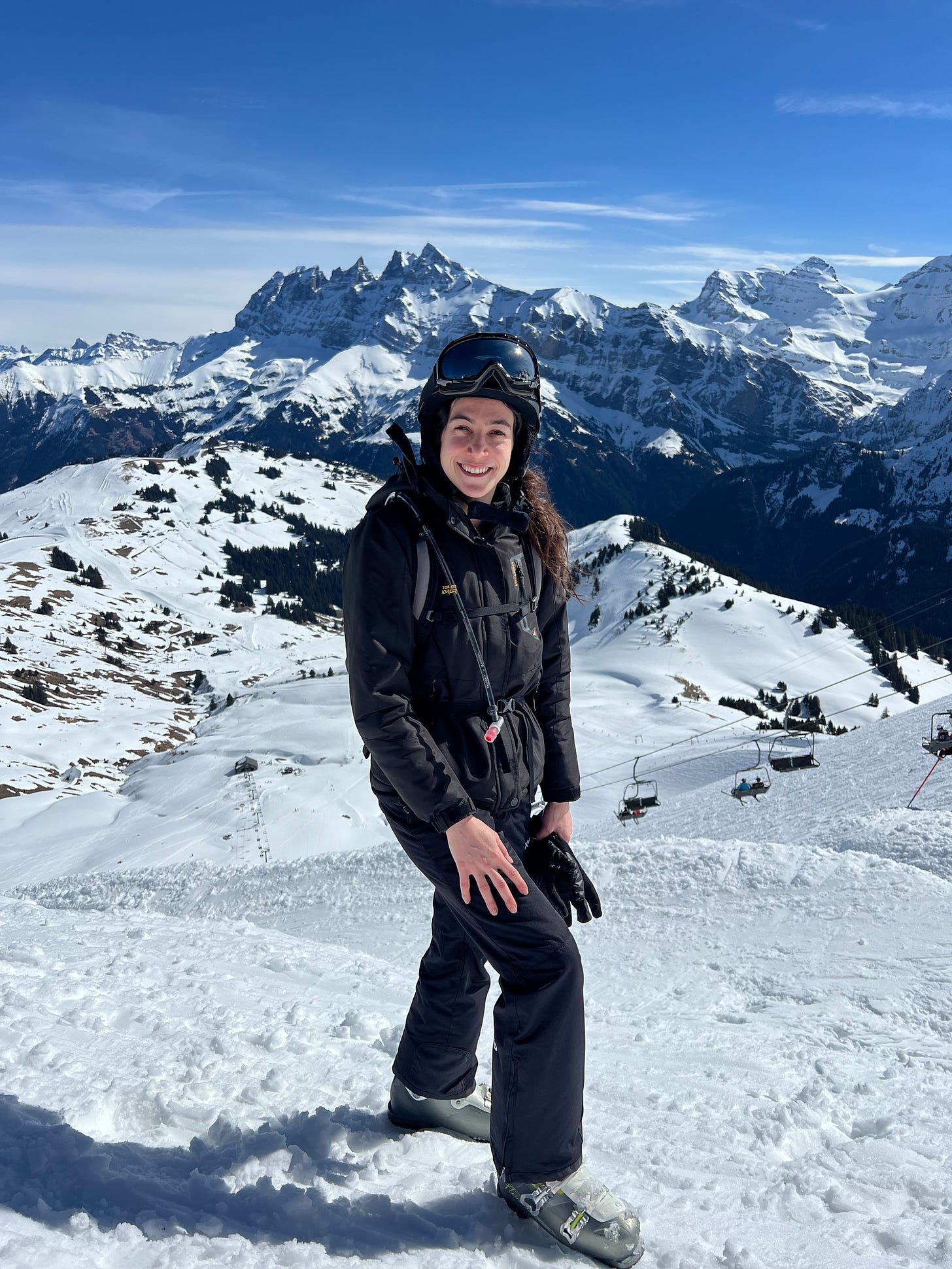What Skiing Taught Me About Fear
Did something ever happen to you that scared you so much, you thought you'd never be able to do it again? Maybe you remember the exact moment you started fearing heights, or the time you froze on stage and developed stage fright.
Fear often comes from a moment, a memory so powerful it convinces your brain to avoid anything similar again.
I’ve been there. Not once, but twice, skiing. Both times, I walked away convinced I’d never ski again. But deep down, I didn’t want that fear to win.
The First Fall
My first time skiing was back in 10th grade on a school trip. I went with one of my teachers, and to my surprise, I picked it up pretty quickly. I learned to “pizza” to slow down, didn’t fall once, and had a great time on the baby slope. Skiing felt fun and manageable, nothing to be scared of.
A few years later, while I was in university, my twin teammates invited me to join them for a ski trip. I remembered how much fun it had been the first time, so I said yes without hesitation.
But this time was different. They were skilled and headed straight for the top of the mountain. I stayed on the baby slope, building confidence. Eventually, the ski lift operator who’d been watching me, told me I seemed ready. That gave me the push I needed.
I followed my friends to the top. But the moment I looked down the slope, my gut dropped. The hill was much steeper than anything I had practiced on. I tried to “pizza” my way down, but I couldn’t slow down. I panicked, lost control, and finally let myself crash, sliding down the mountain with snow stuffing my clothes. In those few seconds, I thought I was about to break a bone or two. It was a very scary feeling.
I asked a ski patrol for help, but since I wasn’t injured, he couldn’t take me down. I unbuckled my skis, swallowed my pride, and walked down the mountain. My friends laughed it off, but I wasn’t laughing. In my head, I thought: I’m never doing this again.
The Second Fall
Seven years passed. I didn’t think about skiing until one day at my coworking space, someone mentioned a ski trip. By then, I had started to embrace discomfort and challenge my fears, so I said yes. I wanted to rewrite that memory.
Again, I joined two friends who were advanced skiers, but I stayed on the small slopes. Eventually, one of them convinced me to try an easy run that started from the top. I felt ready.
And I was at first. The slope was smooth, fun, even exhilarating. I felt like I had “unlocked the mountain.” Then came the steep part. I still hadn’t mastered proper turns, and I started going straight pretty fast. I panicked. My friends yelled instructions, but I couldn’t hear them over the sound of my own fear. I said a prayer and let myself crash. Again.
No broken bones. But my brain was reminded just how scary skiing could be. And once again, I thought I’d never try it again.
But I Wanted to Conquer It
One year later, that same desire came back. I didn’t want to live afraid of something I knew I could overcome. So I booked a solo ski trip. Just me, my car, and the mountain.
That was scary in itself. I was alone. I couldn’t get hurt, I had to drive back. But I focused, applied what I’d learned from my friends and from YouTube, and took it slow. Turn by turn, slope by slope, I started to feel in control.
By the end of the day, I was skiing confidently. No major falls. No fear. I was starting to love it.
Since then, I’ve skied multiple times including 6 days in a row of skiing on trip in Europe. I was able to unlock the full mountains and enjoy breathtaking views. This season, I even did my first two black diamond runs. Was I still nervous? Of course. But the fear no longer controlled me.
The Lesson: Fear Is in the Mind
Fear isn’t always rational. Often, it’s your brain’s way of trying to protect you from past pain. It creates a mental barrier—a loud, anxious voice warning you, “Don’t go there again.”
But that voice doesn’t always tell the truth.
Yes, fear can be useful. It can protect us from danger. But many of our fears especially the ones rooted in past experiences are based on memory, not reality. And if we want to move forward, we have to confront them.
The key isn’t to become fearless, it’s to act despite fear.
So What About You?
Maybe you’re not afraid of skiing. But maybe there’s something else, a fear of starting something new, of public speaking, of vulnerability, of rejection, of failure.
What’s something you’ve been avoiding?
Try tracing that fear back to where it began. Is it based on fact, or memory? What story are you telling yourself about what might happen?
Now, ask: what would it take to rewrite that story?
Fear fades with exposure. Courage grows with repetition.
The first time might feel impossible. The second might still hurt. But with enough time, you’ll stop just surviving it and start enjoying the ride.



